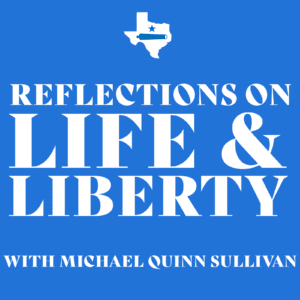
Culture at large tells us we must love and accept ourselves as we are. The doctrine of self-esteem and the creed of self-affirmation have created a generation of narcissists worshiping a false god.
Since at least the 1960s, popular culture has told people that it is OK to embrace and even celebrate their flaws—be that unnatural sexual desire, ravenous gluttony, perpetual laziness, or whatever.
It is spiritual and emotional garbage, physically destructive, and morally bankrupt.
Humanity has long been about the business of attempting to dethrone God by erecting gods in our own likeness, complete with our own failings. It always ends poorly.
This is, in part, why our Founding Fathers rejected the idea that human kings have a divine right to lord over the citizenry. They wisely created a pluralistic republic built on the biblical principles of self-governance.
But self-governance, most literally, means that we must be able to govern ourselves. Yet we have become so infatuated with self-love and self-service that we are trading away our republic. Theoretically, the bargain made between a king and his people was that—when push came to shove—he would trade his life for theirs. In practice, human monarchs have always demanded that their subjects die in defense of the crown.
Only Jesus, guiltless and sinless, took on the kingly duty of self-sacrifice for His people—because He was obedient to His Father and because He loves us more than He loved Himself.
What a contrast to our self-love culture!
So, who did Jesus tell us to love? He was asked to summarize the most important commandments of God. The Gospel of Mark records Jesus as saying God’s law can be summed up as, first, to “‘love the Lord your God with all your heart and with all your soul and with all your mind and with all your strength.’ The second is this: ‘You shall love your neighbor as yourself.’ There is no other commandment greater than these.”
Notice who I am called to love in Jesus’ summary. First, God and then, others. And…? No, that’s it. What about all the energy that sin says I should direct at loving myself? God says to give that love to others.
Culture says to look out for ourselves first. The Christianized self-help books are better; they say to put ourselves second, presumably behind God. Yet, by my count, I don’t rate any of my own affection when following Jesus’ summation of God’s law.
The law and prophets tell us that we must, in love, serve God and serve others. For our self-governing republic to function as intended, you and I, as the citizen-leaders, must die to ourselves and live for each other.




